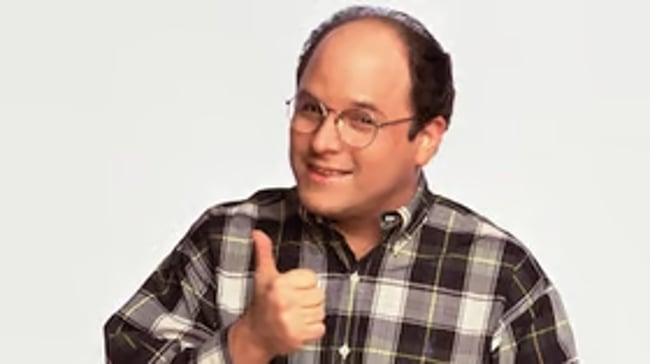

Hair loss: who is responsible?
Photos NBC
Words Anthony Vincent
Share the article on
A scanty beard, thinning hair... Not everyone has luxurious hair genes. Who is the culprit responsible for your misfortunes? The answer lies in your genome. Let’s take a look at the conventional wisdom surrounding hair.
When looking at your father's hopelessly thinning hair, you wonder if you too are destined to end up bald.
One out of every two men inherits androgenic alopecia, commonly known as baldness. Some people still feel that a mother is to blame. But should you really accuse yours at the next family dinner?
Contrary to popular belief, your mother is not the only one responsible.
This assumption is most likely based on a 2005 study conducted by a team of German researchers. After studying 95 different families, scientists identified a gene that is directly linked to the probability of androgenic alopecia. This gene is located on the X chromosome and thus only passed down from mother to son. Now is the time to look through your old photo albums for pictures of your maternal grandfather, whose head can be likened to a crystal ball, giving you the answer to your future head of hair.
Yet, your hair does not simply depend on one gene. In 2008, while examining the karyotypes of over 600 men, the same team of researchers discovered that another gene also plays a role in androgenic alopecia. This culprit may also be located on chromosome 20 and transmitted by both mothers as well as balding fathers. If you carry both high risk genes, like one man in seven, you are genetically predisposed to baldness.
A genetic lottery
On the whole, our hair is a legacy that is not always easy to accept. However, genetic mixing is far too random to predict whether we tend to take after our mother or our father. The genes that code for the nature and colour of our hair are part of hereditary traits known as incomplete dominance. This means that they influence each other without any one of them being fully dominant. For example, this allows for brown hair and a red beard, a genetic inheritance that can remain dormant for one or more generations, before reappearing in another, depending on the many possible random combinations. So, there is no need to be upset if you are the only bald person in the family.
Science is gradually making progress in this field. After studying the genomes of more than 6,000 people, research was published online in March 2016, identifying ten new genes that play a role in hair, eyebrow and beard growth and shape.
Science can now pinpoint the genetic information that codes for hair growth and a predisposition to baldness, a unibrow or a lack of facial hair. Nonetheless, genes alone do not determine the nature of our hair, as it also depends on our environment, diet, stress, hormonal imbalance and even disease.
Outsmarting nature
You can always make lifestyle and hair care improvements to try to overcome these genetic determinisms: avoid excessively hot showers, do not use shampoo that is too harsh, but rather opt for gentler formulas; strengthen hair and stimulate hair growth with an anti-hair loss treatment; and nourish your beard so that it feels softer. If your beard grows slowly, you can stimulate its growth by massaging it daily with castor oil.
Unfortunately, in the case of a receding hairline or no hairline at all - most likely hereditary -, there is no solution to stimulating hair growth. Medical treatments, such as Minoxidil or Finasteride prescribed by a dermatologist, can, at best, slow down the hair loss process.
Of course, you can always resort to clinical grafting methods. If you choose this option, it is best to use the DHI hair transplant method rather than the strip method. It is painless, doesn’t require a scalpel and leaves no scars. For the moment, it's the most effective method available until we can finally find a miracle solution to baldness and other hair problems, i.e., the stuff of bad thrillers like the film Duplicity.


